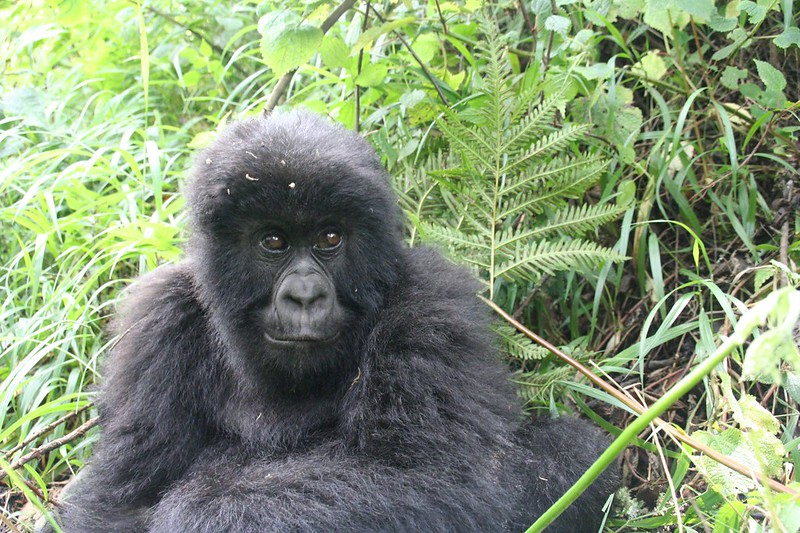Gorilla Trekking Age Limit in Rwanda
Gorilla Trekking Age Limit in Rwanda: Gorilla trekking is an unforgettable experience that everyone should undertake. However, these actions must be executed at the appropriate time and at the correct location. Individuals frequently inquire about the age restriction for gorilla tracking and the rationale behind it. Herein lies the rationale. Individuals aged 15 and older need not be concerned, as this is the minimum age suggested and permitted for tracking gorillas in Rwanda. Individuals below that age are prohibited from tracking gorillas unless a special arrangement has been established between the child’s parents and the authorities.
Gorilla Trekking Age Limit in Rwanda, Your tour operator or travel agent typically requests your passport details to verify age eligibility.
It is crucial to acknowledge that gorilla trekking is not wholly secure, as they are wild animals whose behavior may fluctuate based on varying moods and environmental conditions. It is believed that children aged 15 and above can independently assist themselves in case of emergencies, provided they possess the maturity to adhere to all gorilla tracking regulations.
The gorillas exhibit emotional responses and typically experience fear, particularly in reaction to stimuli such as a flashlight. They also impose charges based on their emotions; at times, they experience overload and see challenges, prompting a desire to retaliate in self-defense.

Gorilla Trekking Age Limit in Rwanda, The dense woodland contains numerous routes, making it challenging for a youngster under 15 to navigate the map, potentially leading them to stray from the paths due to their playful nature. Ultimately, children are inherently playful and may impede the progress of their guardians, which consequently impacts the rangers and the group as a whole, despite the restrictions on the duration of time permitted in the forests. A child aged 15 or older will readily adhere to instructions and exhibit reduced playfulness during the walk.
Why age limit of gorilla trekking is set at 15.
The age restriction for gorilla trekking is established at 15 years, as anyone below this age are deemed minors who may struggle to cope with the potential fright posed by gorillas. Furthermore, mountain gorillas are terrestrial mammals, characterized by their calm and gentle nature, although they may exhibit aggression when provoked.
Children may not remain calm if they encounter a formidable silverback approaching them. Rather than calming down upon encountering them, they merely flee, potentially provoking the gorilla to inflict injury. The sole method to manage an aggressive individual is to adopt a meek demeanor and remain inconspicuous. To prepare tourists to manage their emotions in the case of a gorilla charge. Avoid making direct eye contact with the gorilla, as it may interpret this as a challenge or aggression. Mature tourists are less inclined to flee when charged by the species. It is preferable to adhere to the gorilla trekking regulations and the directives of park rangers rather than those of less experienced trekkers.
When is the best time to Rwanda
Gorilla trekking in Rwanda is feasible throughout the entire year. The best time to visit Rwanda is during the dry seasons, specifically from December to early March and from June to September. The period from December to March constitutes an extended dry season in Rwanda, with temperatures reaching up to 29 degrees Celsius on certain days. Conversely, the months from March to mid-May and July to September are considered the rainy season in the country.
Rwanda generally experiences favorable weather year-round; however, the dry season is more desirable. The weather is typically favorable, and animal observation is more prevalent during this period. For travelers seeking to observe gorillas, this period is optimal for gorilla tours due to the reduced likelihood of rainfall during treks and favorable hiking conditions in the rainforest. We continue to recommend waterproof attire even in these dry months, as the Equatorial climate is quite unpredictable. This period constitutes a peak season; hence, rates for items such as lodging and automobile rentals may be elevated.
Conversely, several budget-conscious vacationers prefer traveling during the rainy season. During this season, hotels experience low occupancy and consequently offer passengers discounted accommodations and dining services, which is an additional benefit. Furthermore, there is less demand for gorilla permits, which ensures tourists an opportunity to observe these endangered species without competition.
